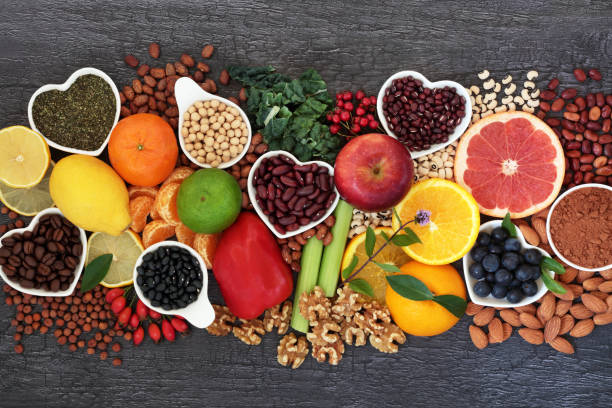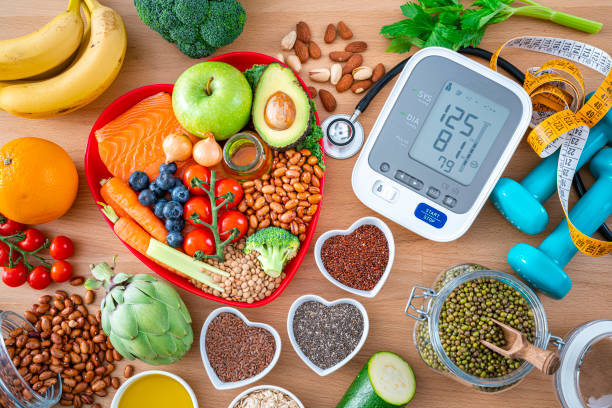
Dietary health is crucial for all people, no matter if you're trying to shed weight or control the blood sugar levels. It's a bit confusing start with all the contradicting health tips available.
To help you on your journey to healthier eating, here are some dietitian-approved tips for making smart choices. In case where you wish to find out new information about health, you have to browse around here https://europacolon.sk/ site.
Fruits and Vegetables in a Variety
A healthy diet is not the removal of bad calories. It's about eating a diverse selection of meals. The wide range of healthful foods can help you keep an ideal weight balance, and lowers the risk of developing heart diseases, diabetes, cancer as well as hypertension.
As a general rule, make sure you consume at minimum five portions of fruit and vegetables every day. Add the dark red and green vegetables as well as peas and beans. Eat a mix of fresh, canned and frozen veggies. Find "reduced salt" or "no-salt added" canned options.
Explore different fruits and vegetables cooked, raw or grilling. Be sure to consume more calorie-rich vegetables and fruits (such such as avocados and berries). Always eat dairy products that have low cholesterol and protein from fish, eggs, poultry as well as meats that are lean and beans.
Enjoy Whole Grains
A diet that is rich in whole grains is associated with a lower incidence for heart-related diseases type 2 diabetes and some cancers. Whole grains are also a source of a range of essential nutrients, including B nutrients, fibre and phytochemicals that reduce inflammation in the body by acting as fuel for healthful gut microbes.
You'll see a wide variety of groceries aisles that boast "whole-grain goodness". Be careful, certain of these items may not be whole grain.
In order to be considered as a complete grain, bran endosperm and germ must be present in their initial proportions. "Refined" grains, such as white flour are ones that have had germ and bran removed which leaves just the starchy endosperm. It is possible to look at "whole grain" on the label of the product, or select foods with the Whole Grain Stamp created by the Whole Grains Council.
Take More of your lean meats
Eating too much fatty red meat may increase the chance of developing bowel cancer so choose lean cuts and limit the amount you eat. Try skinless beef tenderloin, chicken and bacon back. They're low in fat, high in protein and rich sources of vitamin B12 and niacin.
They're not the best choice for those who wish to reduce their cholesterol or weight. They also contain more saturated fats that can be harmful to your health. Try smaller cuts of meat, pork, turkey, lamb and chicken. When you select these meals, and cooking them using healthier methods such as boiling, baking or stewing it will reduce the consumption of fat. Try to eat at least 7 servings of these food items per week.
Consume the Variety of Dairy Products
Dietary dairy products contain protein, calcium and other essential nutrients. You should consume enough dairy products (or alternatives to dairy) every day.
Incorporate yogurt, milk and cheese to your food every day. Consider low-fat or lactose-free milk if you cannot digest lactose. Rice or soy fortified "milks" as well as unsweetened nuts-based yogurts are being part of the Dairy Group too.
Consuming 3 cups of equivalents from the Dairy Group each day provides your body with the majority of magnesium, calcium, vitamin A and vitamin D, and choline in the food patterns. Making a choice of more fluid, low-fat or fat-free milk and less cheese would boost levels of these nutrients while drastically reducing sodium, saturated fat and added sugars. Dairy products could help manage blood pressure, decrease heart disease and diabetes risk and may even help prevent cancer.

Consume More Vegetables
Vegetables are packed with nutrients and minerals, but that's not the only reason you should eat more of vegetables. Additionally, they're a source of protein that's free from all the extra fat and calories in meat, which is helpful for vegetarians or those following the medical diet.
Ingestion of enough vegetables reduces the risk of heart diseases and help lower cholesterol. Potassium is another mineral that assists in the prevention of hypertension, is found in a variety of the vegetables. The fiber in vegetables feeds the good bacteria in your body. For ensuring you consume the recommended 2 to 4 cups of vegetables daily, keep a wide variety in your fridge. (All vegetables count, including the starchy ones such as potatoes and leaves of greens.) To add some flavor to your veggies You can roast them, or steam your vegetables. Do not add unhealthy oils or sauces.
Comments
Post a Comment